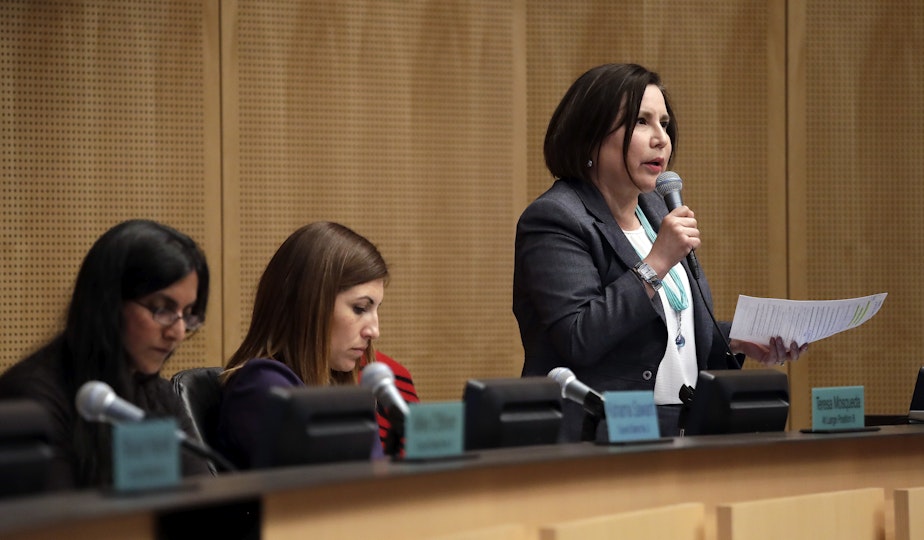Seattle City Council debates details of proposed $1 billion housing levy

The most recent housing levy will expire this year. On Wednesday, the city council started planning for the next one. Most support the mayor's call for a $1 billion levy, but not without tweaking how the money's spent.
The council's investigation began with a look back at how much affordable housing the 2016 levy built.
According to city estimates, it produced 2,741 new rental homes, preserved 530 homes, and assisted 370 low-income households in purchasing a home. A city document says the city is on track (86%) to meet its homelessness prevention goals.
But homelessness is still growing in Seattle.
So, even as they support the mayor's call for a levy three times bigger than the last one, city council members hope to tweak how the money is spent so the new levy can be more effective.
Councilmember Teresa Mosqueda, who often brings a labor perspective to her work, emphasized that the levy must pay not just for buildings, but also for the people who work in those buildings.
Sponsored
She raised concerns that some low-income buildings funded by the levy face staffing challenges, which can lead to increased delays getting new tenants into buidings. Staff in "permanent supportive housing" buildings also provide assistance with health care, child care and financial issues — all part of a larger support system aimed at keeping people housed.
Councilmember Lisa Herbold said not every neighborhood got its fair share of affordable housing the last time around, for example, her district, West Seattle.
“As more development happens, we owe the residents of that community more housing investment than it has seen over 40 years of housing levy production,” Herbold said.
Councilmember Alex Pedersen said the next levy should require affordable housing providers to accept tenants currently living in tiny house villages.
“Just so there’s a greater nexus between reducing homelessness and what we’re trying to do here by creating these low-income units,” Pedersen said.
Sponsored
He said currently, there's no way for the Office of Housing to enforce that requirement on the independent housing providers whose buildings are funded in part by the levy.
Councilmember Sara Nelson signaled her interest in preventing the loss of market-rate affordable homes owned by small landlords.
Office of Housing staff responded by saying the levy provides rental homes that are guaranteed affordable for at least 50 years, which puts them in a different category from market-rate rental homes, even ones that are currently affordable.
Assuming the city council moves forward with its work on the levy, voters can expect it on their ballots this fall.




